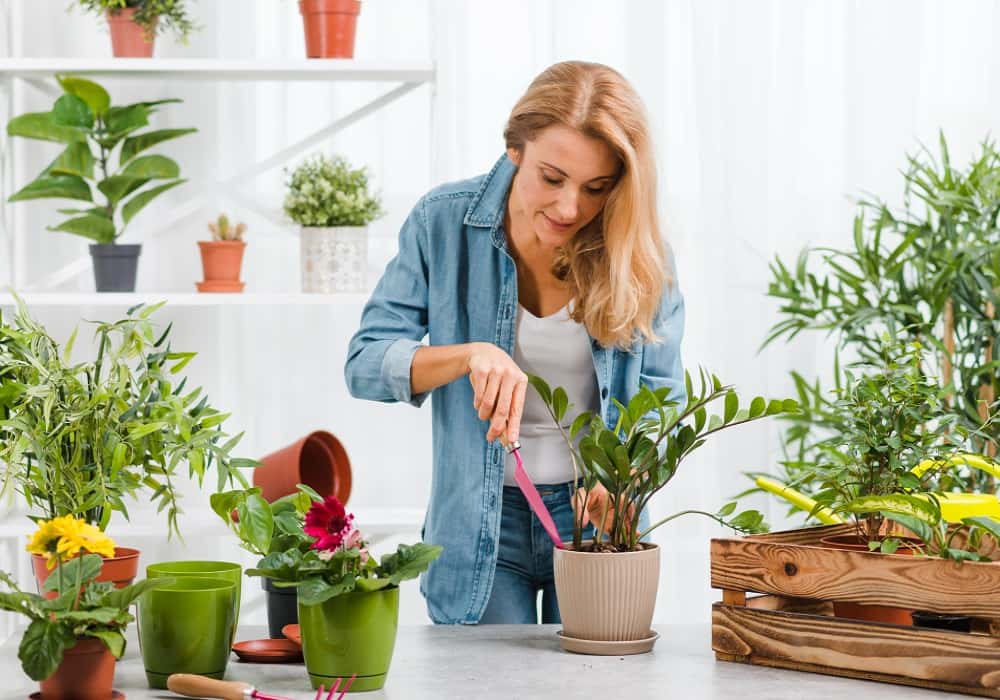Grow Your Own Green Haven: Expert Tips for Gardening at Home
Gardening at home is a satisfying way to beautify your space, connect with nature, and grow your food. Whether you have a large backyard or a small balcony, exploring tips for gardening at home can help you enrich your environment and enhance your skills. Here are some expert tips to help you kick off or improve your gardening journey.
1. Make a Plan: Tips For Gardening
Before you start, take some time to plan your garden’s purpose: do you want vegetables, flowers, herbs, or a mix? Check the available space, sunlight exposure, and soil type. A solid plan will guide your plant selection and garden layout.
2. Select Suitable Plants
Choosing plants that suit your climate and space is essential. Research what grows well in your area and fits your gardening skill. Beginners should consider easy-to-care-for plants like marigolds, succulents, or herbs such as basil and mint.
3. Know Sunlight and Water Needs
Plants have different sunlight and water needs. For instance, tomatoes thrive in full sun for at least 6-8 hours daily, while ferns prefer shade. Group plants with similar needs together for easier maintenance.
- Tip: Use a moisture meter or feel the soil to know when to water, as overwatering is a common mistake.
4. Prepare Your Soil
Healthy soil is crucial for a flourishing garden. Test its pH and nutrients, and improve it with organic compost or fertilizers if necessary. Loamy soil with good drainage is ideal for most plants. Adding compost regularly provides essential nutrients.
5. Invest in Good Tools
Quality tools make gardening more enjoyable and efficient. Essential tools include:
- Trowel
- Pruning shears
- Garden gloves
- Watering can or hose with a spray nozzle
Durable tools last longer and help you care for your plants better.
6. Try Container Gardening
If space is tight, container gardening is a great option. Use pots, hanging baskets, or even old cans and wooden crates. Ensure your containers have drainage holes to avoid overwatering.
- Tip: Choose lightweight containers for easy movement to catch sunlight.
7. Use Companion Planting
Companion planting means growing plants together for mutual benefit. For example, marigolds can deter pests when planted with vegetables, and basil enhances tomato flavor while repelling insects. This approach utilizes space efficiently and fosters healthy growth.
8. Manage Pests Naturally
Pests can be challenging, but you can manage them naturally:
- Invite beneficial insects like ladybugs to eat aphids.
- Apply neem oil or homemade sprays with garlic and soap to repel pests.
- Regularly check for infestations and address issues quickly.
9. Use Mulch for Moisture and Weed Control
Mulching helps retain moisture, regulate temperature, and prevent weeds. Organic mulches like straw, bark chips, or leaves decompose over time to add nutrients.
10. Stay Dedicated to Maintenance
Regularity is vital for a successful home garden. Make time weekly or daily to:
- Water plants
- Prune dead leaves
- Inspect for pests
- Add compost or fertilizers as needed
Establishing a routine helps you meet your garden’s needs and ensures its health.
11. Grow Your Own Food
Home gardening can be incredibly rewarding, especially when you grow your own fruits, vegetables, and herbs. Start with simple crops like cherry tomatoes, lettuce, spinach, or coriander. Enjoying fresh produce from your garden enhances your meals with flavor and nutrition.
12. Use Vertical Gardening for Small Spaces
If you lack horizontal space, try vertical gardening. Utilize trellises, wall planters, or hanging pots to grow plants upward. This approach works well for climbing plants like beans, peas, or decorative flowers like petunias.
13. Embrace Seasonal Gardening
Plants grow best in their specific seasons. Organize your garden with seasonal varieties to ensure continuous blooms or produce. Rotate your crops yearly to preserve soil health and deter pests.
14. Keep Learning and Experimenting
Gardening is an ongoing process of discovery. Feel free to explore new plants, methods, or designs. Connect with local gardening groups or online forums to share insights and maintain your motivation.
Conclusion
Building your own green space requires patience, care, and creativity. By applying these expert tips for gardening at home, you’ll create not only an attractive garden but also reap mental and physical health benefits. Whether you’re tending to bright flowers or growing vegetables, the rewards of home gardening are limitless. So, grab your tools, get your hands in the soil, and watch your garden thrive!






